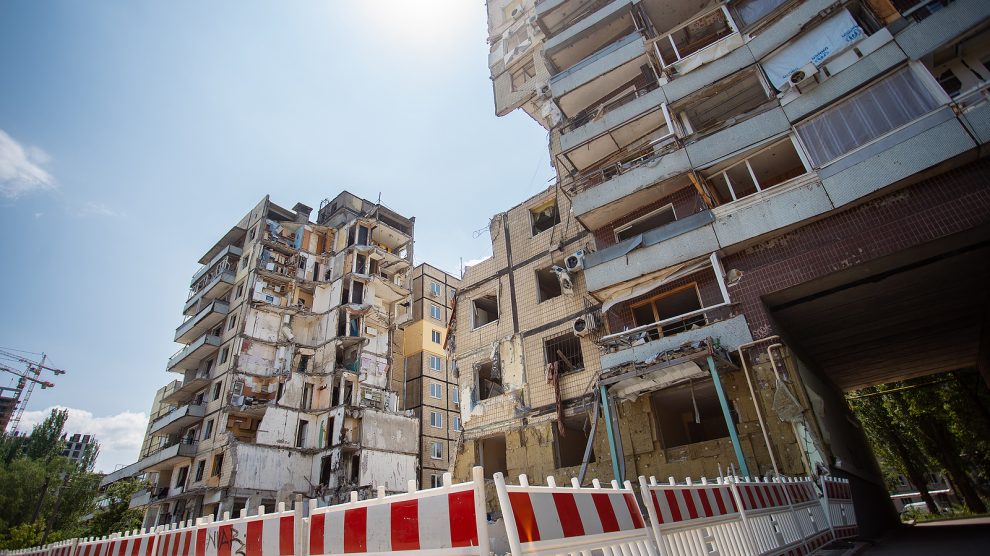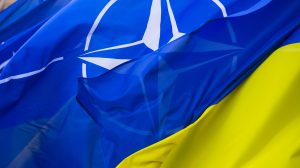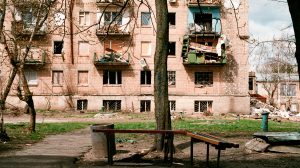Catch up quickly with the stories from Central and Eastern Europe that matter, this week led by Volodymyr Zelensky asking why Ukraine’s allies have not provided Kyiv with the same level of air defence offered to Israel.
Russia’s war on Ukraine
If the United States and its allies can rush to Israel’s defence in the skies, shooting down dozens of drones and missiles fired by Iran, why can’t they do the same for Ukraine—which has suffered under Russia’s missile attacks for more than two years?
That’s the question Ukraine’s President Volodymyr Zelensky and his country’s staunchest backers in the West were asking on Monday, hours after the US, the United Kingdom, France and Jordan helped Israel shoot down some 300 drones and missiles fired by Iran in retaliation after Israel killed its senior military commanders in Syria.
“European skies could have received the same level of protection long ago if Ukraine had received similar full support from its partners in intercepting drones and missiles,” Zelensky wrote on Monday evening in a post on X.
Zelensky repeated his statement on Wednesday following Russian bombing of the city of Chernihiv, north of Kyiv, killing at least 17 people.
“This would not have happened if Ukraine had received sufficient air defence equipment and if the world’s determination to counter Russian terror had been sufficient,” Zelenskiy said via the Telegram messaging app.
Russia’s military death toll in Ukraine has now passed the 50,000 mark, the BBC confirmed this week.
In the second 12 months on the front line—as Moscow pushed its so-called meat grinder strategy—the BBC said the body count was nearly 25 per cent higher than in the first year.
BBC Russian, independent media group Mediazona and volunteers have been counting deaths since February 2022. New graves in cemeteries helped provide the names of many soldiers.
More than 27,300 Russian soldiers died in the second year of combat—according to the BBC’s findings—a reflection of how territorial gains have come at a huge human cost.
The overall death toll—of more than 50,000—is eight times higher than the only official public acknowledgement of fatality numbers ever given by Moscow in September 2022.
The actual number of Russian deaths is likely to be much higher.
One of the largest private western investors in Ukraine has claimed that corrupt officials in the country’s security services and Zelensky’s administration are trying to extort tens of millions of euros from him.
Arnulf Damerau, an Anglo-German businessman and a former adviser to Glencore and Trafigura, told the Financial Times he was being blackmailed by a clique of senior Ukrainian officials.
Western governments have become increasingly concerned over government corruption in Ukraine but have largely held back from making their criticism public as they rally support for Kyiv to shore up its faltering defence against Russian aggression.
The war has given space for many of the corrupt networks linked to former president Viktor Yanukovych to reassemble, European security officials say.
Damerau has since August been the co-owner of Cosmolot, a large online gaming and gambling website and the country’s 10th-largest taxpayer.
Other news from the region
Croatia’s governing conservatives convincingly won a parliamentary election on Wednesday, but will need support from far-right groups to stay in power. The ballot pitted the ruling conservative Croatian Democratic Union (HDZ), led by Prime Minister Andrej Plenković, against an alliance of centrist and left-wing parties informally led by President Zoran Milanović and his Social Democratic Party (SDP). Official results gave the HDZ 60 seats in the 151-seat parliament, the SDP 42. The far-right Statehood Movement was third, with 14 seats, making it a kingmaker in future talks for the next government.
Poland plans to join a project to develop a European-wide air defence system to deter potential drone and missile attacks, Prime Minister Donald Tusk said this week. Speaking at a news conference with Danish Prime Minister Mette Frederiksen in Warsaw, Tusk said Iran’s recent attack has confirmed that it’s very important to have a system akin to Israel’s Iron Dome air defence. “There is no reason for Europe not to develop its own shield against rockets and drones,” Tusk said. “It doesn’t take much imagination to understand that we may be in the danger zone as well.”
Georgia’s parliament gave initial approval on Wednesday to a bill on “foreign agents” that the EU said risked blocking the country’s path to membership and triggered protests for a third straight night. The fate of the bill is widely seen as a test of whether Georgia intends to pursue a path of integration with the West or move closer towards Russia. Critics compare the bill to a law Russia has used to crack down on dissent. As many as 10,000 opponents of the bill gathered outside the parliament, sitting atop cars and buildings—a day after police used pepper spray to clear protesters away from part of the building.
The Bulgarian economy loses over one billion leva (530 million euros) annually due to the fact that the country’s land borders remain outside the Schengen area, representatives of the Plovdiv-based Union of International Hauliers (UIH) said at a news conference in Sofia this week. The estimate is based on data from three border crossings: Vidin-Calafat and Ruse-Giurgiu at the border with Romania and Kulata-Promachonas at the border with Greece. The loss would be greater if other border crossings were added, the UIH explained.
Armenia on Tuesday urged the International Court of Justice (ICJ) to hold Azerbaijan responsible for what it said was the ethnic cleansing of Armenians from the Nagorno-Karabakh region. “After threatening to do so for years, Azerbaijan has completed the ethnic cleansing of the region and is now systematically erasing all traces of ethnic Armenians’ presence,” Armenia’s representative, Yeghishe Kirakosyan, said on the second day of hearings at the UN’s top court. Azerbaijan recaptured the region in September after years of ethnic Armenian control, prompting most ethnic Armenians to flee to Armenia.
Ethnic Serb members of the municipal council in Srebrenica have voted to rename many of the city’s streets to commemorate Serb war victims while ignoring the 1995 massacre of 8,000 Bosniak men and boys. Despite international appeals to rethink the plan and a boycott by Bosniak members of the council, the proposal to rename 25 streets in Srebrenica and the neighbouring village of Skelani was approved this week in a move that critics have said is a further attempt to wipe the historical record of Europe’s worst atrocity since World War II.
Human Rights Watch (HRW) this week called on several EU countries and Turkey to refrain from sending Tajik dissidents taking shelter in their countries back to Tajikistan. Several individuals linked to the banned Tajik opposition movement Group 24 who were residing in EU members Lithuania and Poland as well as Turkey have disappeared or been threatened with being extradited back to Tajikistan in recent months. “The EU and Turkey should protect opposition activists and refrain from returning them to Tajikistan, where they risk being tortured,” said HRW’s Syinat Sultanalieva.
Czechia has been hit by a soaring number of whooping cough cases and the fast growing outbreak has killed three people, health authorities said on Monday. The country of 10.9 million people has registered 7,888 cases of the respiratory illness this year, said the State Institute of Public Health. Last week, health authorities registered 1,494 new cases, the fastest weekly growth this year. Some 183 are in hospital. The spread is the worst since 1959 when vaccinations started, official health records have shown. Teenagers are the worst-hit age group, chief public health officer Pavla Svrcinova said.
Unlike many news and information platforms, Emerging Europe is free to read, and always will be. There is no paywall here. We are independent, not affiliated with nor representing any political party or business organisation. We want the very best for emerging Europe, nothing more, nothing less. Your support will help us continue to spread the word about this amazing region.
You can contribute here. Thank you.







Add Comment